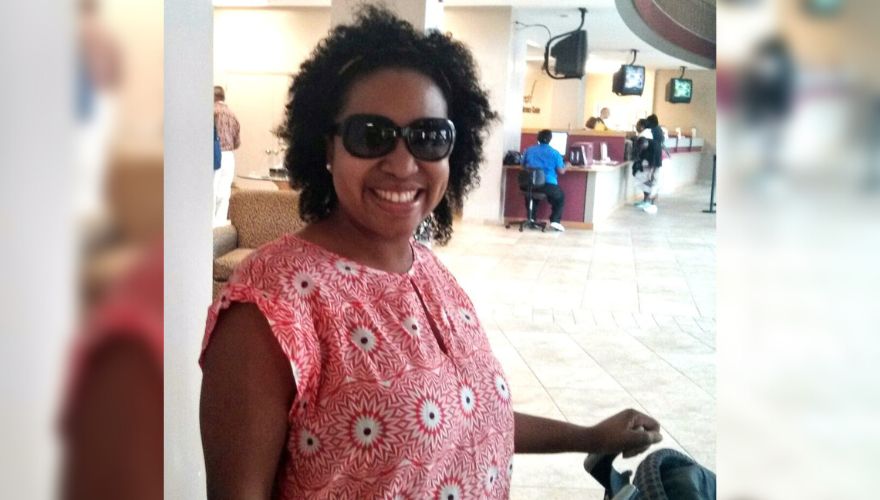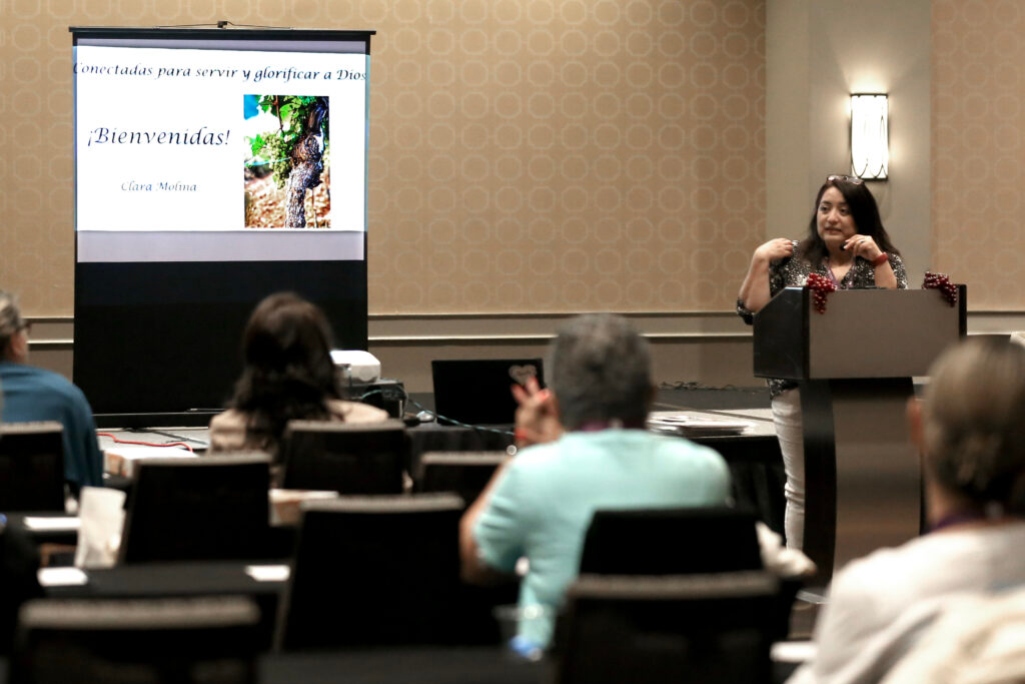
Shayna Ross, shown in 2012 at the Black Church Leadership and Family Conference, has attended the event nearly every year since its inception.
RIDGECREST, N.C. (BP) – Shayna Ross’ earliest memories of Black Church Leadership and Family Conference (BCLFC) predate the actual event itself, now in its 31st year.
Ross’ memories date to 1988 when her parents Dennis and Pam Mitchell took her to the annual multicultural Small Sunday School Week, the conference’s precursor held at the former Glorieta Conference Center in Glorieta, N.M. Her family had moved from California to Dallas when her father was attending Southwestern Baptist Theological Seminary.
“It was my connection to home, what I thought I lost when my family moved to Dallas,” Ross told Baptist Press. “I was 7 or 8 years old at the time.”
Ross, now a 43-year-old wife, mother and literacy coach in Marietta, Ga., has attended BCLFC nearly every year since it moved to Ridgecrest Conference Center when Ross was 14.
“I saw a host of members of past churches we had been members of that my family considered family,” Ross said. “This moment in time offered me peace and the warmth of feeling God’s arms around me reminding me He didn’t forget about me.”
While the conference grew to more than 1,000 attendees before the COVID-19 pandemic, it was smaller than its predecessor. While Small Sunday School Week was tailored to meet the ministry needs of several ethnic groups, the repurposed Black Church Week was designed to meet the unique needs of Black Southern Baptists.
Her first year, Ross was among 10 African American teenagers at Ridgecrest amid other events held concurrently on campus, including Centrifuge camp. She recalls the importance of having other Black students to fellowship with among the larger Centrifuge crowds.
“I remember it so well because when we registered for Centrifuge, not one of us were put in a group together. We were all split up which had a devastating effect,” Ross told Baptist Press. “After day two of being isolated, we made a decision to stick together.”
The students, unbeknownst to their parents, skipped Centrifuge and bonded to create their own small group that summer.
“We had Bible Study together, we prayed together and played card games together. We even ventured out one evening and attempted to hike the mountain,” Ross said. “As a result of that time, I ended up rededicating my life to Christ before the week was out. That week reassured me that I wasn’t alone being a preacher’s kid. I was understood. I was seen.”
Ross’ father is executive director of the National African American Fellowship of the Southern Baptist Convention. This year, Ross helped her parents with NAAF’s July 17th evening reception for ministers and ministers’ wives.
“For some, Black Church Week is just a conference, a checklist, a tick on a resume that one has taught or preached at a Black Church conference,” Ross said. “For me, it was a family reunion, a refreshing, a revival. It fed my soul. Black Church Week had a soul.
“It was soul filling for those in ministry and their families to have the opportunity to breathe and be in a non-judgmental space because we were all in it together.”
The conference, sponsored by Lifeway Christian Resources, drew 600 attendees this year, said conference convener Mark Croston, national director of Black Church ministries for Lifeway Christian Resources.
“We are not spending our time looking back, but moving forward,” Croston said, “as suggested in our theme scripture (Isaiah 43:18-19).
“Churches are hungry for insights and training on how to successfully navigate this post-pandemic paradigm. Our theme this year is Reimagine, but we really try to do this and change some things each year to meet the continually changing needs of the church.”
(EDITOR’S NOTE – Diana Chandler is Baptist Press’ senior writer.)


